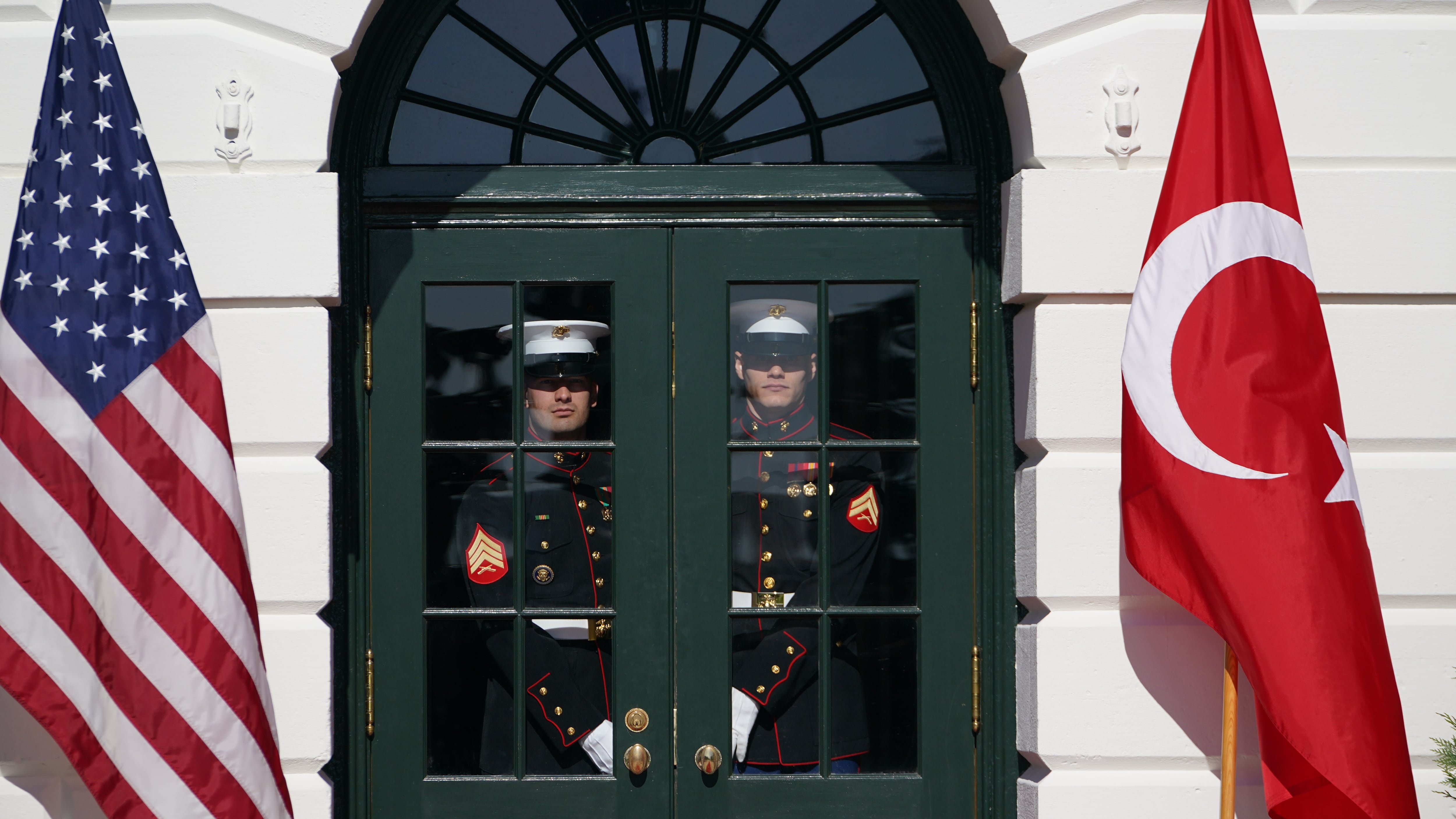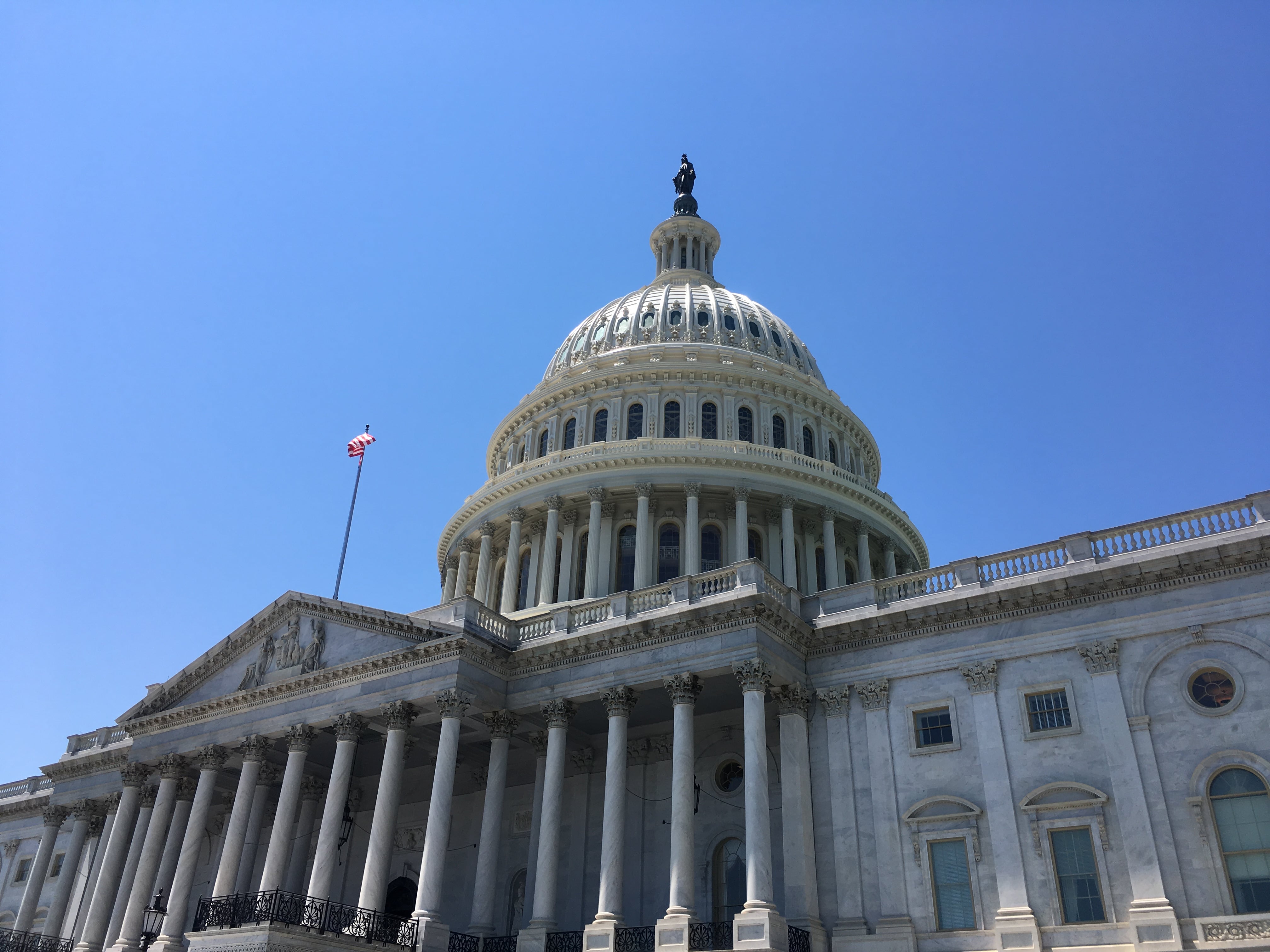WASHINGTON ― U.S. Sen. Robert Menendez, who clashed with the Trump administration over its arms sales to the Mideast, its rejection of Cold War arms control treaties and its withdrawal from the Iran nuclear deal, is poised to become the chairman of the Senate Foreign Relations Committee.
For the first time in a decade, Democrats will have control of both chambers of Congress and the White House, and Menendez, D-N.J., would be a powerful partner for incoming President-elect Joe Biden. Biden has signaled a tougher stance toward Russia, following the massive SolarWinds hack of American government and private networks, and toward Saudi Arabia, a major customer of U.S. arms exports ― as well as plans to renew America’s alliances.
The panel will have to grapple with a raft of last-minute moves by the Trump administration including a $23 billion sale of F-35 fighter jets and other weapons to the United Arab Emirates (which Menendez opposed), its sanctions on NATO-ally Turkey for purchasing Russia’s S-400 missile defense system (which Menendez sought) and its withdrawal of thousands of U.S. troops from Afghanistan and Iraq. It will also have to navigate the world’s reaction to last week’s bloody siege on the the U.S. Capitol by supporters of President Donald Trump.
Though Menendez hasn’t announced his priorities since Democrats won control of the Senate last week, he has in recent months sponsored a bill to elevate the protection of human rights in the control and export of defense articles, called the Safeguard Act. He also led legislation that was defeated under GOP control to block the UAE arms deal, arguing the sale could spark a Mideast arms race and that the administration rushed the vetting.
“There are simply too many outstanding questions about the protection of critical U.S. military technology, the broader implications of these sales to U.S. national security regarding the UAE’s relationships, for example, with Russia and China, as they exist today,” he said last month about the UAE deal.
RELATED

Last year, the Senate failed to override a trio of vetoes issued by Trump, allowing the administration to sell billions of dollars of weapons to Saudi Arabia and the UAE. Menendez had used his power as ranking member on the panel to hold the sale for months, and then played a lead role in the bipartisan coalition that passed 22 Senate resolutions disapproving of sales worth $8 billion.
The episode reflected the growing animus in Congress toward Saudi Arabia from Democrats and Republicans over the killing of journalist Jamal Khashoggi and the Saudis’ role in the war in Yemen, but also a revival of tough congressional oversight of weapons sales.
“If you’re looking at Menendez, he has been instrumental in challenging arms sales to Saudi Arabia, for example, you cannot imagine that it will be business as usual, or at least business as we’ve seen it for the last four years,” said Rachel Stohl, vice president for defense issues at the Stimson Center.
“I don’t think you’re going to see this massive reform of the arms transfer control process on Day One, but I hope you see the Biden administration stop the arms sales that were negotiated last minute to particular countries.”
Stohl suggested the Biden administration could take action to halt Saudi arms sales that were blocked by Congress before Trump vetoed the legislation.
Though the Biden administration hasn’t revealed whether it would seek to reverse the UAE deal ― and Trump administration officials plan to finalize those contracts before Inauguration Day ― Biden has vowed to take away the “dangerous blank check” that Trump gave Saudi Arabia’s Crown Prince Mohammed bin Salman. A cooling of ties between the White House and Riyadh, the world’s biggest arms importer, could have repercussions for U.S. defense firm profits.
Bill Hartung, of the Center for International Policy, speculated that Biden could tinker with elements of the UAE deal or reverse it entirely, or even go so far as to suspend and review all of Trump’s recent 11th-hour sales. He could also opt to do nothing and focus his attention at the country’s more pressing problems.
RELATED

For defense watchers, other leadership changes in the Senate include the new chairman of the Appropriations Committee and its defense subcommittee Vermont Democratic Sen. Patrick Leahy, and the new chairman of the Senate Armed Services Committee, Rhode Island Democratic Sen. Jack Reed. Reed questioned the UAE deal with Menendez.
Leahy co-sponsored the human rights-focused Safeguard Act with Menendez. He has long called for a ban on landmines and cluster munitions, and he is the father and namesake for two laws that prohibit the executive branch from providing military assistance to foreign security force units that violate human rights with impunity.
“He’ll be about the strongest human rights advocate you’re going to get,” Hartung said, adding that Leahy will be better aligned with Biden than with Trump, who prioritized the defense industry and certain autocratic leaders in considering weapons sales.
One of the biggest challenges for the Biden administration will be how to respond to Iran’s decision to dramatically increase uranium enrichment. That move was seen as a ploy to strengthen its hand in future negotiations with Biden. The president-elect has promised to return the U.S. to the Obama-era deal, called the Joint Comprehensive Plan of Action, if Iran once again abides by its provisions.
However, Menendez, who opposed the original deal, could prompt Biden to travel that path more slowly. Mendendez has said he would support a potential return to it if it goes further in restricting Iran’s military and nuclear capabilities. He has also called for further engagement of allies in an overhaul of the JCPOA.
“Anyone who believes that just going back to the JCPOA, including some of my strongest colleagues who supported the JCPOA, recognize that more has to be done than just the JCPOA,” he told reporters in October.
Joe Gould was the senior Pentagon reporter for Defense News, covering the intersection of national security policy, politics and the defense industry. He had previously served as Congress reporter.








